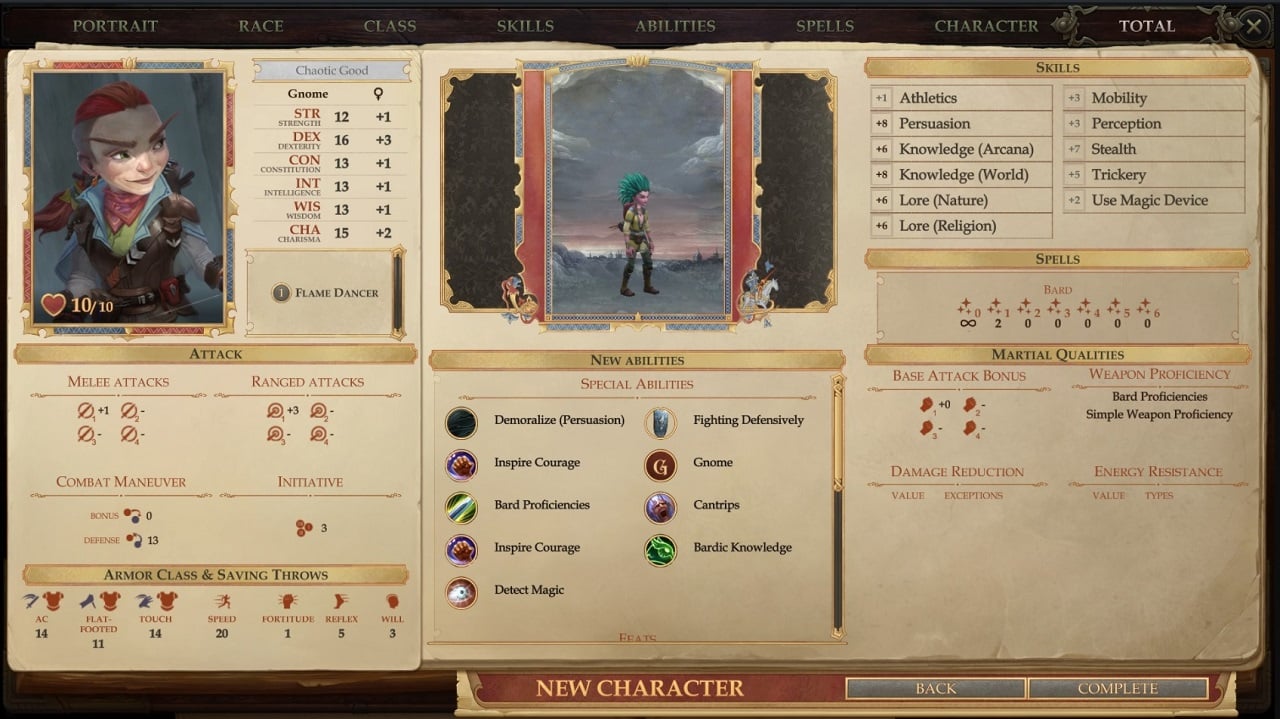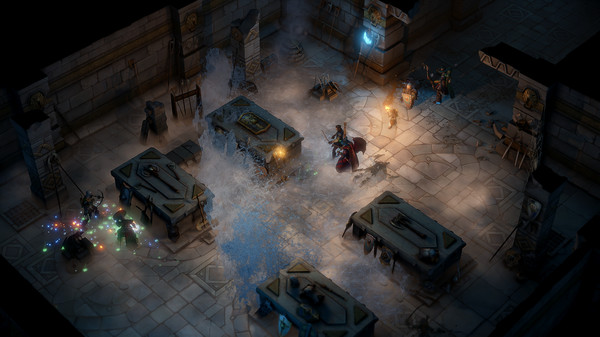Pathfinder: Kingmaker Review
OCTOBER 05, 2018
A while back, I was having a conversation with some folks about the different merits of the various recent editions of
Dungeons and Dragons, and I had to point out that when I began playing the game — in 1974! — there were no “editions,” just, well… the game. Of course,
D&D went on to become not just a tabletop game icon, but the primary inspiration for computer RPGs as well, some of them using the actual
D&D ruleset in one form or another.
Pathfinder: Kingmaker is one such example.
Backed by a successful Kickstarter campaign, Owlcat Games’
Pathfinder: Kingmaker is inspired by the popular
D&D adventure
Pathfinder, and uses the
D&D 4.0 rules to drive much of what goes on under the hood. From the character creation to every enemy encounter, from equipment and armor effectiveness to weapons and spells, just about everything is transparently the result of a 20-sided dice roll. While it might be possible to stumble through the game oblivious of the underlying mechanic, to do so would ignore the authenticity of
Kingmaker’s D&D roots and would probably end in failure.
At first blush, one might be tempted to dismiss
Pathfinder: Kingmaker as another fantasy RPG in the vein of
Baldur’s Gate, Pillars of Eternity or
Divinity: Original Sin. There certainly are similarities. The setting is familiar enough, the monster types have been encountered before and the quests and characters pull from well-established traditions. But
Pathfinder adds a wrinkle or two, including a bit of city building and management that adds a new layer to story and character development as well as a significant amount of optional, on-the-side complexity. Like much of
Pathfinder, the depth of engagement in the weeds of the mechanics is adjustable. If you want to see each and every roll of the dice, you can.
Although
Pathfinder: Kingmaker at first seems welcoming enough, and begins with a prologue in the “gather a party and do battle” mode, it shows its stripes as a more challenging and sometimes frustratingly difficult game in a way that its popular brethren are not. There are some obvious balancing issues, which will no doubt improve with patches and fixes. There are tool tips aplenty but quite a lot of
Pathfinder: Kingmaker is opaque and it’s very easy to feel lost and not well-equipped to make important choices. I never felt truly at home, despite that most of the mechanics of movement, party management, fighting, and casting are on the surface pretty familiar. I guess that for me, the game never found the sweet spot between easy mode and too much information mode. And it almost feels like all those numbers weight the game down.
We’re in a happy place in the hobby where nearly all RPGs take the time to present more-or-less interesting and well-written characters. In
Pathfinder: Kingmaker, the dialog choices are a reflection of, not just dice rolls and alignment, but choices and actions along the way (even if ultimately, they’re the result of dice rolls, too). The characters that one adds to the party are quirky and although they fulfill the standard RPG roles (fighter, healer, mage, etc), they do so with some interesting and memorable attitudes. The player character’s progression from lone fighter to party member to powerful baron is at the heart of the story and adds a dollop of political intrigue with the expected clash of magical forces,
Pathfinder:Kingmaker’s landscapes, castles and dungeons might lack a bit of imagination but they are pretty enough to look at, and there are some effective lighting and spell effects. Overall, the game is colorful, if technically inconsistent, as frame rate slowdowns and longish load times are common.
Pathfinder: Kingmaker is definitely one of the most faithful recreations of the
D&D experience in digital form and those with patience, a love of numbers and a willingness to tolerate a bit of opacity and imbalance have much to look forward to. There’s something a bit overwhelming and unfriendly about the game’s mechanics and while
Pathfinder’s faithful translation of
D&D and city building elements are unique, a lot of the setting, story and characters are a bit too “standard CRPG.” There is room for improvement and growth through patches and content, and it will be interesting to watch
Pathfinder: Kingmaker evolve.















































